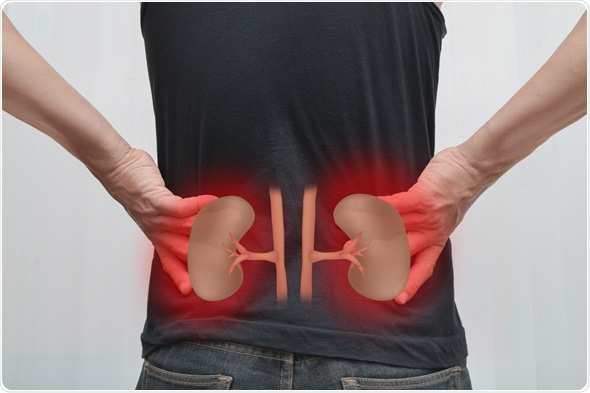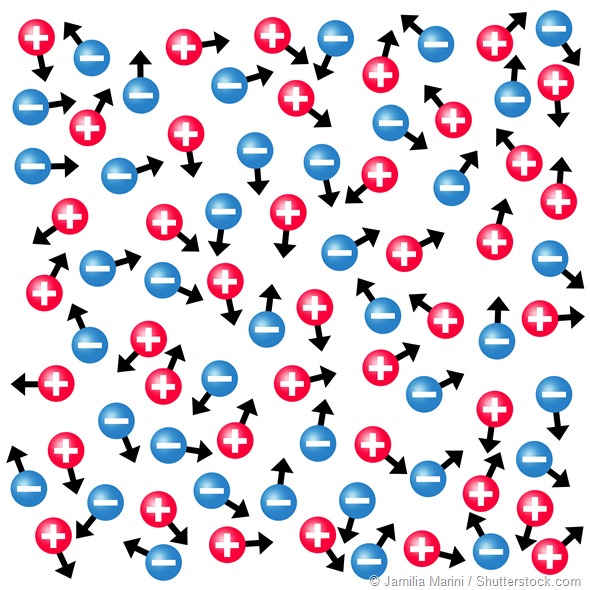Acute kidney failure, also known as acute renal failure, involves a sudden decline in the function of the kidneys. As the kidneys usually play an important role in the regulation of fluid and electrolytes in the blood and body, acute kidney failure can lead to electrolyte disturbances that may cause symptoms or complications.

© phugunfire / Shutterstock.com
This article will give an overview of acute kidney failure and how it can lead to electrolyte disturbances and also will discuss the symptoms that may occur as a result of this.
About acute kidney failure
Acute kidney failure has a sudden onset that may be from several hours to a few days and is caused by trauma, infection, or obstruction of the kidney. If the underlying cause is addressed, the function of the kidneys will improve.
In a healthy individual, the kidneys play a key role in maintaining a stable level of fluid and electrolytes in the body by filtering the blood and excreting certain components to keep homeostasis in the body. Electrolytes are charged particles that help to transmit nerve and muscular impulses throughout the body.
When there is a malfunction of the kidneys, the balance of fluid and electrolytes can be altered, leading to an imbalance of certain electrolytes. This can, therefore, affect the transmission of impulses of the nerves and muscles throughout the body, which can have serious implications.

Chaotic motion of ions in electrolytes. Ion transport is altered in indivudals with acute kidney failure.
Hyperkalemia (potassium Imbalance)
The kidneys are primarily responsible for the excretion of potassium from the body and alter the extent of potassium excretion according to the current concentration in the blood.
An individual with acute kidney failure may not be able to excrete as much potassium as usual, which has the potential cause hyperkalemia. Hyperkalemia is associated with symptoms such as:
- Abdominal cramping
- Fatigue
- Muscle weakness
- Paralysis
- Cardiac arrest
Hypernatremia (sodium Imbalance)
The concentration of sodium is essential for maintaining fluid and acid-base balance and for neuromuscular function. Healthy kidneys alter the excretion of sodium in the urine to prevent hypernatremia.
An individual with acute kidney failure may not be able to excrete as much sodium as usual, thus causing hypernatremia, which is associated with symptoms such as:
- Disorientation
- Muscular twitching
- Hypertension
- Weakness
Hypermagnesemia (magnesium imbalance)
Likewise, renal failure can also commonly cause an increase in the levels of magnesium in the blood, due to insufficient excretion of the electrolyte. Hypermagnesemia is associated with symptoms such as:
- Hypotension
- Reduced heart rate
- Cardiac arrest
Hypocalcemia – (phosphorus and calcium imbalance)
There is a reciprocal relationship between phosphorus and calcium, and the levels of both of these electrolytes can be affected by kidney failure. It can lead to retention of phosphorus and a reduction in the levels of calcium in the blood. Hypocalcemia is associated with symptoms such as:
- Muscle spasms
- Seizures
- Arrhythmias
- Demineralization of bones
- Cardiac failure
Electrolyte disturbance
The role of the kidneys in maintaining the balance of fluid and electrolytes in the blood becomes clear when considering the outcomes on electrolytes in patients with acute renal failure. The levels of electrolytes such as potassium, sodium, magnesium, phosphorus, and calcium can all be affected and lead to a range of symptoms. Fortunately, if the cause of acute kidney failure is reverse and normal renal function returns, the electrolyte disturbances and related symptoms should improve.
References
Further Reading
Last Updated: Jun 11, 2019